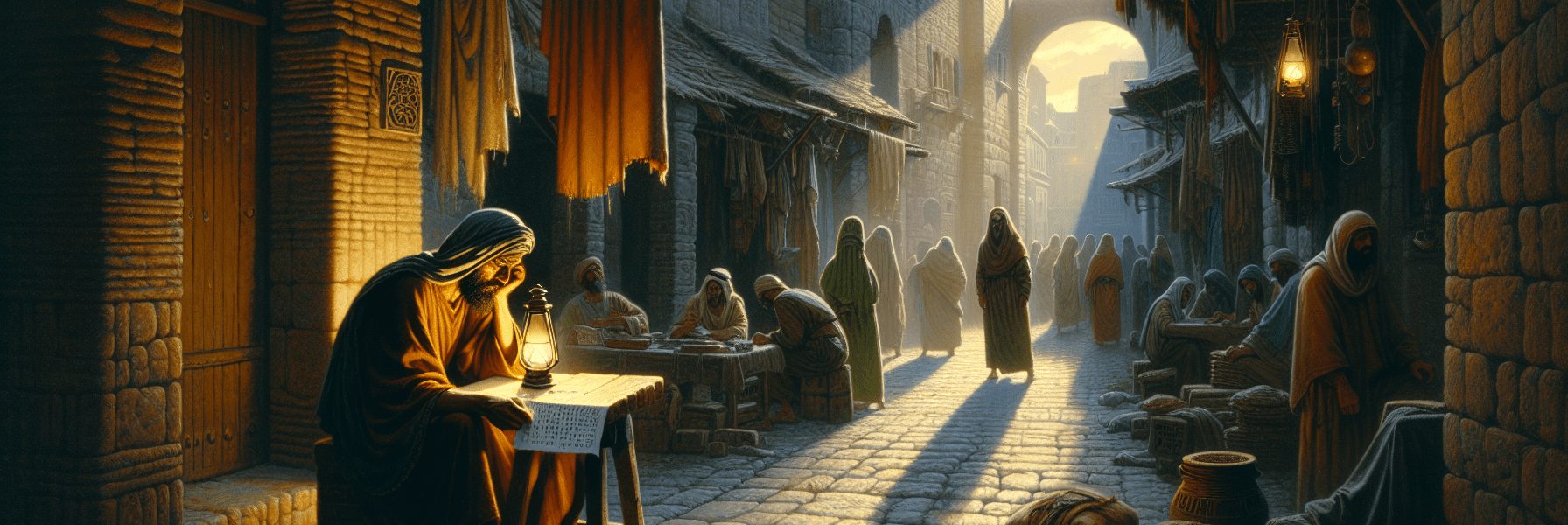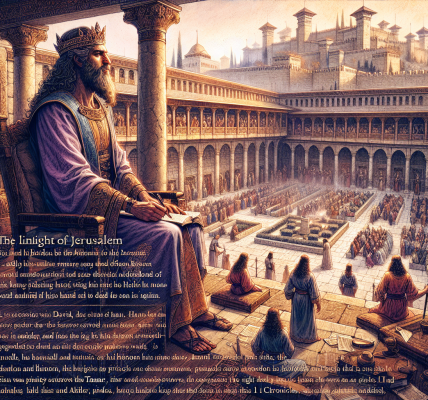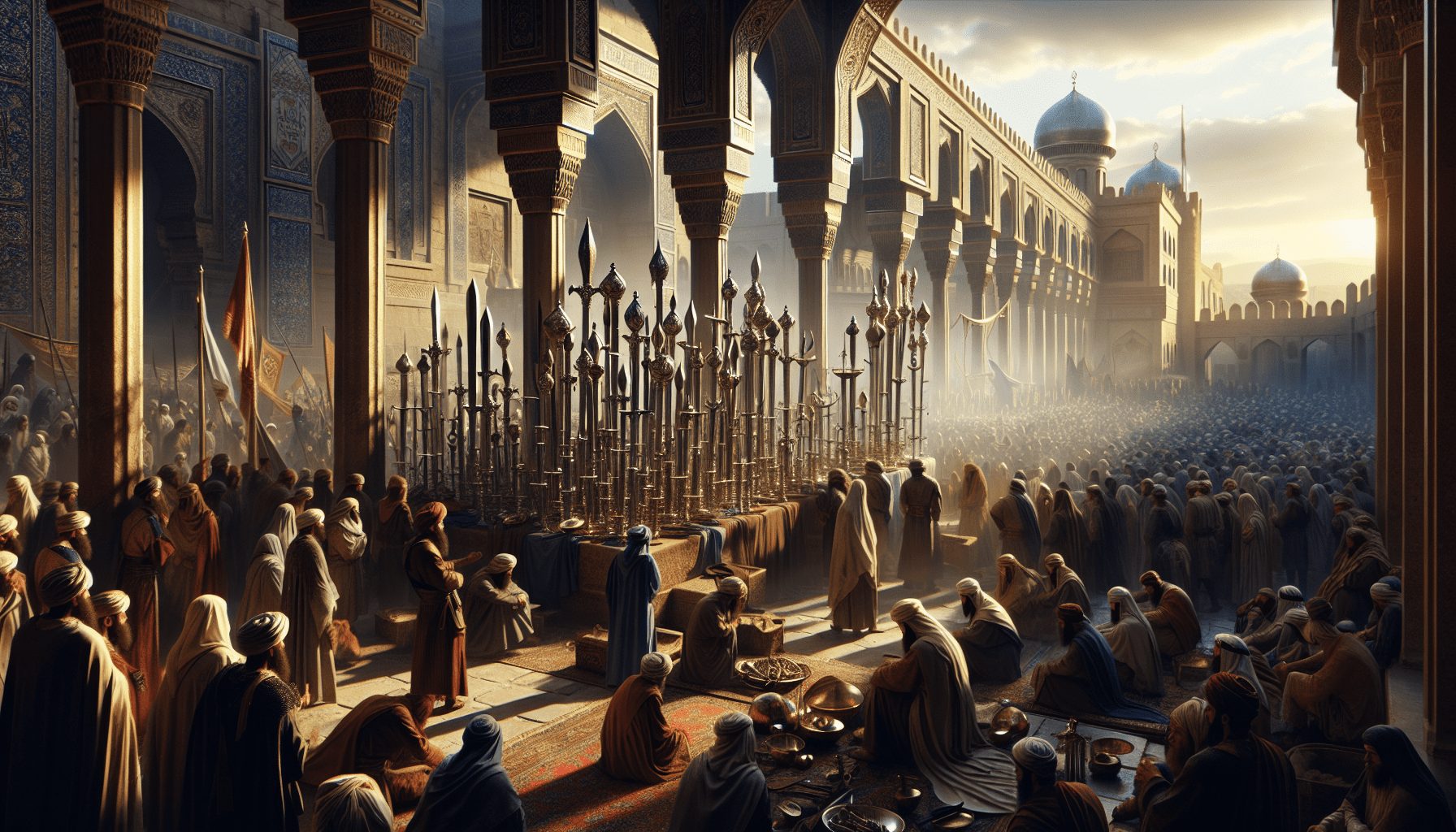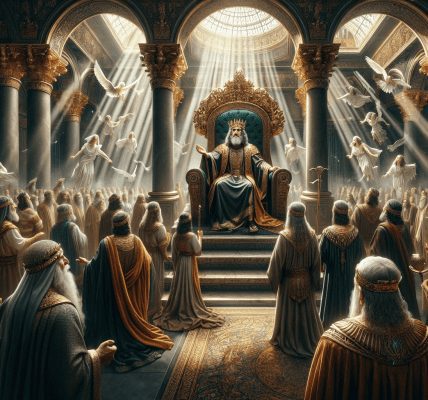**The Struggle Within: A Story of the Divided Heart**
The sun hung low over the city of Rome, casting long shadows through the narrow streets where merchants packed their wares and laborers trudged home. In a quiet corner of the city, a man named Marcus sat alone in his small chamber, his face buried in his hands. The flickering light of an oil lamp danced across the parchment before him—a letter from the apostle Paul, recently delivered by a traveling believer.
Marcus had been raised under the strictest observance of the Law. His father, a devout Jew, had taught him every commandment, every statute, from the time he could walk. He had memorized the Torah, fasted on the appointed days, and offered sacrifices with reverence. Yet now, as he read Paul’s words, his soul trembled with recognition.
*”For I do not understand my own actions. For I do not do what I want, but I do the very thing I hate.”* (Romans 7:15)
The words struck him like a hammer. How often had he resolved to walk in purity, only to stumble? How many times had he vowed to control his temper, only to lash out at a servant? He had prided himself on his discipline, yet in secret, his thoughts betrayed him—envy, pride, lust—all lurking beneath the surface of his righteous exterior.
He remembered just that morning, when a wealthy merchant had insulted him in the marketplace. Though he had smiled outwardly, inwardly he had seethed, imagining retribution. Later, when a beggar had reached out to him, he had turned away, too preoccupied with his own affairs. The Law demanded love, yet his heart resisted.
Marcus groaned, pressing his fingers against his temples. *”So now it is no longer I who do it, but sin that dwells within me.”* (Romans 7:17)
He had always believed that if he tried harder, prayed more, disciplined himself better, he could overcome his failings. But the truth was undeniable—the more he struggled against sin, the more it ensnared him. It was as if another law warred within his flesh, dragging him down no matter how fiercely he fought.
A memory surfaced—his younger self, standing before the priest with a sacrificial lamb, its blood spilled for his sins. Yet the guilt had never fully lifted. Year after year, sacrifice after sacrifice, he remained a prisoner to his own nature.
Then his eyes fell on the next lines of the letter:
*”Wretched man that I am! Who will deliver me from this body of death? Thanks be to God through Jesus Christ our Lord!”* (Romans 7:24-25)
A shudder ran through him. Not by his own strength, not by the Law, but through Christ alone. The weight of his striving began to lift as the truth settled into his spirit. He was not condemned to an endless cycle of failure. There was deliverance—not from his own efforts, but from the One who had conquered sin itself.
Outside, the sounds of the city faded into the stillness of night. Marcus knelt beside his lamp, tears wetting the parchment. For the first time in years, he did not pray with the desperation of a man trying to earn righteousness. Instead, he whispered with the relief of one who had been set free.
*”There is therefore now no condemnation for those who are in Christ Jesus.”* (Romans 8:1)
And in that moment, the war within his soul was not over—but he knew now where victory lay.




